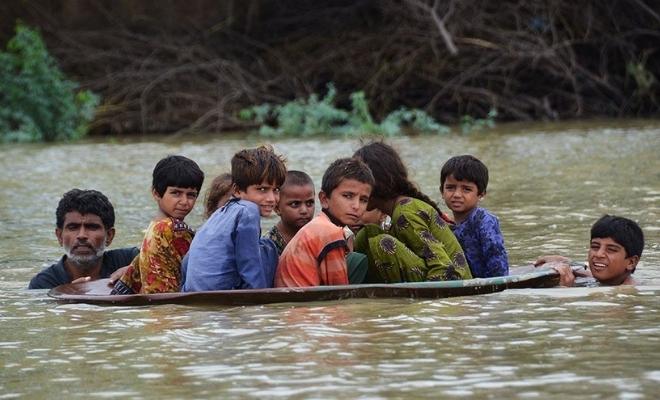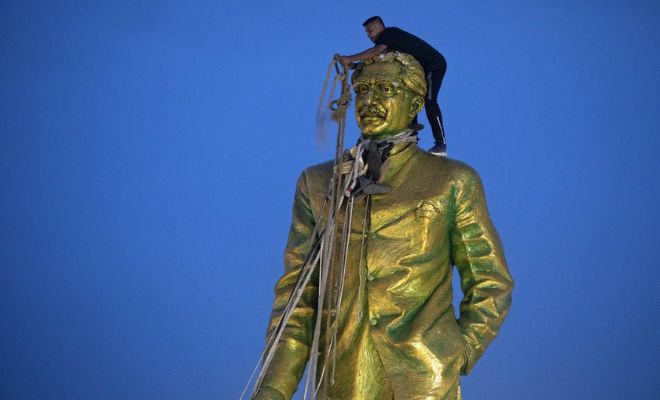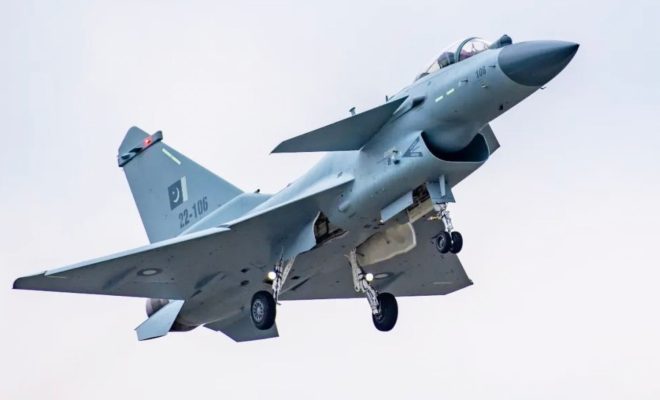The Floods in Pakistan

Nearly 1400 people have lost their lives due to the severe flooding in Pakistanm, which began due to excessive rain and melting glaciers. A third of the country is submerged under water, and 33 million people have been displaced. Basic provisions, like anti-malaria medication, maternal health services for pregnant women, and even food supplies are not secured. When visiting the flood-stricken areas the UN Secretary-General, said:
“I have seen many humanitarian disasters in the world, but I have never seen climate carnage on this scale. I have simply no words to describe what I have seen today.”
How should we understand natural disasters such as this one? Is this merely a test from Allah (swt) on which we should show patience? Is this the fault of the Western nations, whose use of fossil fuels is driving catastrophic climate change? More importantly, what response is required from us as Muslims?
A Natural Disaster?
As Muslims, we recognize that Allah is in control of everything that happens to us, however, we are also responsible for our actions. This means, that when we are affected by calamity and hardship, we should be confident in the knowledge that Allah (swt) is rewarding us for our patience, and that we are still under His protection.
What this should not do is stop us from reflecting on our own actions and their consequences. So, while floods are a natural disaster, how those in authority over us try to prevent and prepare for them is their responsibility, and we should hold them accountable for their failures. As RasulAllah (saw) told us:
“Every one of you is a shepherd and is responsible for his flock. The leader of people is a guardian and is responsible for his subjects…” [Bukhari and Muslim]
The Second Khalifah, Umar ibn al-Khattab (RA), described how responsible he felt for even the animals under his rule:
“If a lost sheep under my care were to die on the banks of the Euphrates, I would expect Allah the Exalted to question me about it on the Day of Resurrection.” [Ḥilyat al-Awliyā’ 137]
When there was a famine under his rule, he wrote to the governors of Egypt, Sham, and Iraq to send food. He ensured meals were cooked by the state, and that all those who had taken refuge in Madinah were fed at the expense of the state. He refused to eat anything but the coarsest of meals until the famine had passed.
It is easy and politically convenient for our leaders today to treat natural disasters as “acts of God”, as a way to not take responsibility. But that is not the standard set for us by our beloved Messenger (saw) nor his companions (ra).
Knowing this, it is imperative for us to ask: Has Pakistan, a corrupt regime that is incapable of delivering basic services at the best of times, shown any sincerity in managing Pakistan’s water resources, or preparing for natural disasters? The current head of state, Shahbaz Sharif, was implicated in stealing relief funds during the 2010 earthquake in Pakistan. The country has not made a significant public investment in water management in the last half-century. The country struggles with basic tasks, such as the collection of revenue, and spends most of its money on paying Riba on the loans it receives from international debtors.
While Muslims should be patient in the face of calamity, this should not stop us from calling out a government that is fundamentally inept at taking care of the basic needs of the people.
Blaming the West
It is accurate to say that the unprecedented amount of rain experienced in Pakistan during this monsoon season is a result of climate change. It is also correct to point out that Pakistan contributes less than 1% to global greenhouse emissions, meaning it makes almost no contribution to the problem of climate change, but is having to face the consequences of the West’s disregard for the environment.
These are well-founded reasons, and the Climate Change Minister of Pakistan is using them to blame the West for the flooding and demand reparations as a consequence.
This opposition to the brutal system of resource extraction and hyper-consumerism that is fueling the climate crisis rings hollow though. Firstly, climate change is not a new phenomenon. The government of Pakistan has known for decades that the climate is changing, and that increasing temperature can cause problems for a country that already has torrential rains, along with melting glaciers. If anything, knowing that climate change is a reality makes the government’s lack of investment in any infrastructure or disaster management even worse.
The second and more important reason why blaming the West does not work as a response is that the government of Pakistan has done nothing to make Pakistan independent of the global Capitalist order that the West leads. If the government of Pakistan is recognizing that Capitalism is a ruthless ideology that sacrifices the welfare of society for the greed and desires of the elite, even at the risk of environmental collapse, then why does it not free Pakistan of its subservience to the ruthless Capitalist elite?
Rather, the government of Pakistan is more interested in impressing the IMF and World Bank and servicing their debt than caring for their own people. When the IMF commands Pakistan to get rid of its food or fuel subsidies, the government does, regardless of the damage it does to the people’s ability to buy life essentials. In turn, the Pakistani military continually serves the geo-political and security interests of the leading Capitalist powers, even at the expense of Pakistan’s own national interests.
In the absence of preparation of known threats, and an agenda to liberate Pakistan from its servitude to bloodthirsty Capitalism, blaming the West is more of an excuse than a serious position of the government. It would be better advised to focus on its own lack of preparation and lack of an independent vision. As Allah (swt) tells us:
“Indeed, Allah will not change the condition of a people until they change what is in themselves.” [TMQ 13:11]
Our Response
Just like every other time that the Ummah has seen a calamity, the Muslims have donated their time and money to be of assistance. The Muslims in Pakistan have not just given money, but also volunteered their time to set up medical camps, conduct rescue operations, and manage the supply of donated items. Muslims from all over the world have sent money, and mimbars across the Muslim world have made collective dua for the people of Pakistan.
This indicates that the Ummah is still deeply connected, and united in its concern for each other, in keeping with the words of RasulAllah (saw):
“You see the believers as regards their being merciful among themselves and showing love among themselves and being kind, resembling one body, so that, if any part of the body is not well then the whole body shares the sleeplessness and fever with it.” (Bukhari)
However, it is crucial for us to understand that these individual actions of prayer and charity can only go so far. In the absence of righteous and competent Islamic leadership in Pakistan, the funds we send can be squandered, and the medical camps we set up can be washed away in the next flood. We need lasting protection for the interest, properties, and lives of the Muslims. This protection can only come from the state, as our beloved Messenger (SAW) taught us:
“Only the Imam is a shield, behind whom you fight and you protect yourself with…” [Muslim]
This will not be the last calamity to befall the Ummah. If we truly feel the pain of the Ummah, we have to strive to regain this protection by resurrecting righteous Islamic leadership in the Muslim lands through the revival of the Khilafah state. This is essential to protecting our lands from the attacks of predatory capitalism, catastrophic climate change, and endemic poverty. More importantly, it is a collective obligation laid upon us by our most merciful and wise Creator. RasulAllah (saw) warned us:
“…whoever dies without the pledge of allegiance (to the ruler) upon his neck dies a death of jahiliyya” [Muslim]
The death of jahiliyya does not refer to literally dying as a kafir but is meant to emphasize the severity of the importance of
having a legitimate Islamic ruler in the Muslim lands. If we do not have such a leader to give bay’ah to, then it becomes our collective obligation to organize politically until such leadership and governance emerges in the Muslim lands. Fulfilling this obligation is the only way that we can protect ourselves and our Ummah from calamity, in this life and the next. May Allah ease our path!
“Corruption has flourished on land and sea as a result of people’s actions, and He will make them taste the consequences of some of their own actions so that they may turn back.”
[TMQ 30:41]









